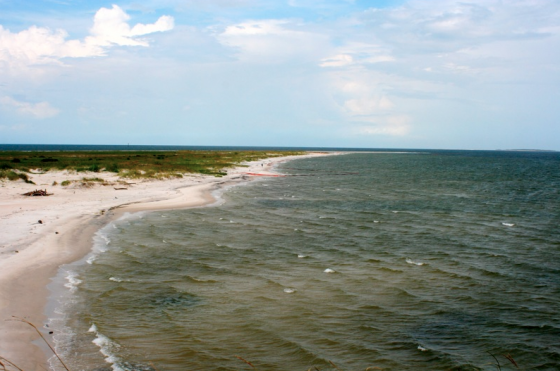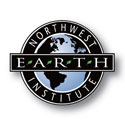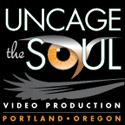One Year Later: Anniversary Reflections on the Gulf
Today marks the one-year anniversary of the BP oil spill in the Gulf of Mexico. We asked some of the PDX 2 Gulf Coast participants what they were thinking, feeling and doing.
Anna Berardi, Founding Director of the Trauma Response Institute at George Fox University – Portland:
One year out from the Gulf disaster, the Trauma Response Institute is now active with response projects related to the 3/11/11 triple disaster in Japan (earthquake, tsunami, and nuclear fall out). The parallels never cease to amaze me: How we organize ourselves into self-sustaining communities matters! It impacts our economic, social, and physical well being.
Vulnerable populations along the Gulf Coast continue to suffer, from the safety of the food they eat to how they earn a livable wage. And voices of power and privilege continue to deny the truth of their experience and the legitimacy of their need. I’m not sure we realize that we are as vulnerable as the people along the Gulf. The experience of the Japanese, one of the most advanced nations in disaster preparedness, is perhaps the best mirror predicting our vulnerabilities. Commitment to sustainable living- from our energy sources, to food production, to the way we live in community with one another – needs to be in the forefront of our minds.
This past year, what has taken root in me is a renewed commitment to draw awareness to the urgency of shifting our collective mindset from one of personal, individual survival (what is good for me and my kin) to a broadening awareness of care for the entire living system of which we are a part. If we truly care about our families, the dead dolphins in the Gulf and the displaced families in the Japanese nuclear fall out zone will matter to us as well. In my line of work, I am privileged to observe how care is the wellspring for deep and lasting (life-giving, sustainable) change. It nurtures creativity, it inspires action, and increases tolerance for the discomfort experienced along the way. Every day I see signs that we are capable of this type of paradigm shift.
The DeepWater Horizon blowout anniversary is a time to pause and remind myself to not become complacent regarding my life commitments. The political unrest of overstressed African nations, the ongoing war in the mid-east, the health threats looming over the nation of Japan, and the devastation silently lingering in the Gulf are keeping me wide awake and alert. How about you?
John Waller, Uncage the Soul Video Production:
I think many of our original fears that this event will be forgotten, that similar practices of deepwater oil exploration and drilling will continue, and that reckless habits of consumption will endure, have been confirmed. Does that make me pessimistic about our opportunity to learn and change from this? Perhaps. But I have noticed within myself an awareness about my own personal consumption of petroleum based products and have taken steps to reduce my footprint. And I guess that is where change starts… it starts with me.
Mike Houck, Director of the Urban Greenspaces Institute:
All of my follow up activity post trip has focused on doing my part to make the Portland-Vancouver region a great place to live and ensuring we integrate nature into the city so everyone has access to nature where they live, work, and go to school. Both Bob Sallinger [fellow PDX 2 Gulf Coast team member] and I have been actively involved in The Intertwine Alliance which is a coalition of NGOs, businesses like Keen, and government agencies like Metro, Portland Parks, Portland’s Bureau of Environmental Services, National Park Service and U S Fish and Wildlife. Our aim is to continue building The Intertwine, a world class, interconnected system of parks, trails, natural areas and healthy watersheds on both sides of the Columbia River.
Many of our projects relate directly to PDX 2 Gulf Coast’s interest in getting us out of our cars and off oil. Our goal is to create a city and region that is livable and lovable. By expanding the regional trail network and protecting and restoring natural areas you don’t have to get into a car to experience nature or have a fabulous experience walking, running or cycling with nature nearby. We’re working with the city to export its Climate Action Plan to the region. We need to both reduce greenhouse emissions and build more resilience into our natural systems to prepare or adapt to climate change that we know will adversely impact both human and natural systems.
Bob and I are also working hard on getting a book out that let’s people know where they can go kayaking, cycling or hiking around the region. “Wild in the City, Exploring The Intertwine” will be out next fall. It is the second edition of our “2000 Wild in the City, A Guide to Portland’s Natural Areas.” As you can tell by the title, we’re expanding beyond describing parks and including examples of how the city and region is better integrating the build and natural environments. Mike Rosen’s agency, Portland’s Bureau of Environmental Services, has been a great partner and Mike and many of his staff has submitted some great contributions to the book. Again, the purpose of the book is to encourage people to appreciate nature nearby, become good stewards, and reduce their carbon footprint by walking, cycling, kayaking to parks and natural areas near where they live. This will reduce reliance on the car and help protect biodiversity in the heart of the city.
Sarah Menzies, Director at Red Reel Video:
In terms of the Gulf oil spill, I have spent the last year wrapping my mind around my personal responsibility for the disaster. I am a consumer, so therefore I am responsible. I spent the early months after the spill taking stock of the oil that fuels my life. It is sewn into the fabrics of my clothing, it produces the food that I buy, it’s in my phone, camera, computer… it’s even in the bike that I choose to drive over my car. The more I thought about, the more paralyzed I became by how overwhelmed it was all making me feel.
A year later and I still feel responsible. Yes, as a consumer I feel responsible, but it has morphed into responsibility to work toward preventing this sort of thing from happening again. But we’ve got our work cut out for ourselves. Gaining traction requires education, conversation, and personal behavior change. Take public transportation, ride your bike, grow your own food, limit single use consumption, reuse what you’ve got, buy second hand, engage your politicians, talk to your friends and co-workers, and most importantly – become passionate! This excites me! Being part of the system means I can change it, and this feels a little less overwhelming.
Mike Rosen, Manager, Bureau of Environmental Services Watershed Division:
I worry that this is the one day, maybe the only day for a good long time, that we will reflect on this tragedy. One day is not enough to consider the lingering and future impacts. People out of work, oyster beds destroyed, mysterious deaths among dolphins, red snapper lesions, a very slow start to the tourist season, tar mats and the revival of deepwater drilling.
I want to make sure we get the word out about what happened and what needs to be done. For me that means looking for every opportunity to distribute our curriculum, show our documentary and complete our book. We need to initiate conversation, discussion and introspection. We need to catalyze action.
This will only be a turning point if we, as a nation, commit to change and demand information. Why are we restarting deep water drilling in the Gulf? Do we know that effective and available response plans have been created and can be implemented? Are we asking tough questions about how to track and remedy environmental impacts? Are we inspired to consume less and thus reduce the demand for oil?
Moving forward, we continue to make connections between consumption and environmental risk. We achieve and promote a level of mindfulness that requires us to connect our actions with real environmental consequences. To me that means accepting that every mile driven unnecessarily and every plastic product used when a less toxic substitute is available creates the demand for oil and the pressure to extract it through dangerous and irresponsible practices.
























NO COMMENT
Leave a comment